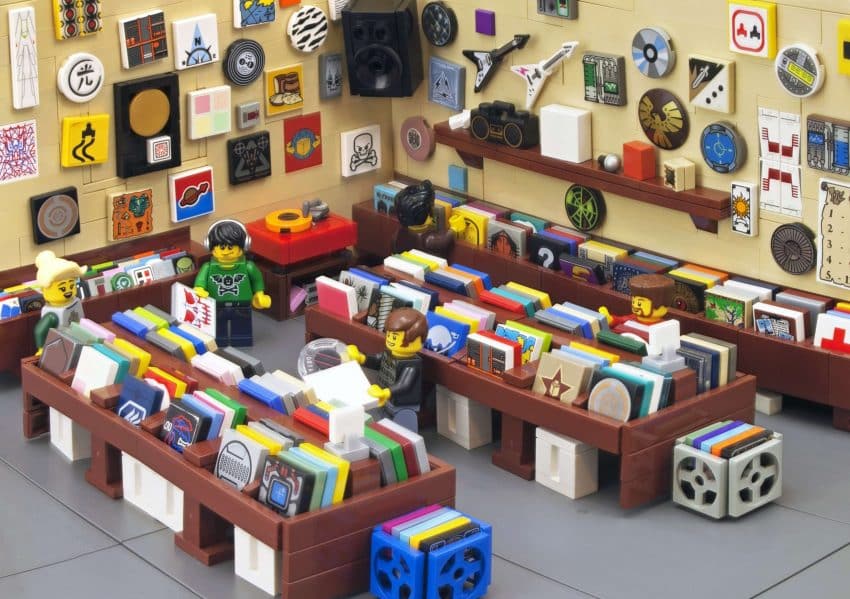Parents, Students and Teachers: Education in the Time of Coronavirus
Updated: June 19, 2024

The novel coronavirus is a pandemic that is sweeping the world. In its wake, so much has changed. Businesses have shut down, grocery stores have been endlessly refilling their shelves, governments are devising new economic plans, and the entire institution of education has experienced a massive shift towards online learning. As an online university, the University of the People has not experienced much change per se with how our education continues — but we understand that students, parents, and teachers are likely facing new challenges at home.
As a parent who is also a student, you may find yourself with your kids suddenly at home during the day. You may be a student who is now also working from home. No matter who you are, your life has been affected by this pandemic. Without knowing when it will end, there are modifications that everyone is taking in their daily lives.
To help you stay on track during this unprecedented time, we are giving you some information about what the coronavirus is, as well as ways in which you can manage your time given whatever your new circumstances may be.

Photo by Anna Shvets from Pexels
What You Need to Know About Coronavirus
Here are some of the quick facts about the Coronavirus:
1. What is Coronavirus?
Coronavirus is a type of virus that can cause a respiratory illness named COVID-19. It first appeared in Wuhan, China in December 2019 and has since become a pandemic.
2. How does COVID-19 spread?
COVID-19 is spread by contact with an infected person. It can also be spread via community spread, which means that people may become infected without knowing where it exactly came from.
3. Are students in danger or at risk?
Everyone is at risk. However, the current data shows that the elderly and people with pre-existing conditions are most at risk of death once infected.
4. What are the symptoms?
Symptoms of coronavirus include: cough, fever, and shortness of breath. In extreme cases, COVID-19 can cause respiratory problems, kidney failure, or death. Once infected, a person may only start displaying symptoms within 14 days of exposure.
5. Is there a cure/treatment?
Currently, there is no cure for coronavirus. There are supportive measures to relieve infected people; however, there is no specific treatment since the virus is so new.
One of the best things to do to help stop the spread or flatten the curve of everyone becoming infected during the same time period is to practice social distancing. Social distancing means that you avoid large crowds or close contact with other people.
Examples of social distancing include:
- Working from home
- Taking online classes
- Facetiming friends instead of meeting in person
- Doing workouts from home rather than in a gym
Photo by Andrea Piacquadio from Pexels
Checklist for Parents and Teachers
Teachers
Many schools have been shut down around the world in order to protect students and teachers from contracting the virus. The timing for when schools may reopen is currently unknown.
However, some teachers have been setting up distance learning. To do so, teachers should follow this guide:
- Talk to administrators and ask for help if needed
- Overly communicate to parents and teachers
- Prepare lessons as usual
- Utilize digital resources like Zoom conferencing and Google Classroom for collaborative learning
- Remember to give yourself time to log off and take a break (as if you were in a regular school and left for the day)
- Break up your day in chunks for class time and also times for answering emails or making phone calls
Parents
As a parent, you are now likely in uncharted territory. Your children are home from school, but they may still be attending classes. Additionally, you may be a student yourself who has to manage your own class schedule while caring for your child.
Here are some ideas to help better control your time:
- Prepare multiple meals in advance (meal prep will lessen the amount of time you spend cooking daily)
- Continue to support healthy habits for you and your children by designating a place within your house for school and work
- Take breaks and stand up/stretch
- If you can attend class at any time, set up your schedule when you are the most productive
- Have your children have virtual socialization time with digital playdates via Facetime, Skype, or Google Hangouts
- Set aside time to workout everyday. Some ideas are: Youtube videos, apps on your phone, playing sports in your backyard or driveway, or doing exercises like push-ups, sit-ups, and planks
- Eat healthy as much as possible and avoid constant snacking and sugar crashes
- Schedule your time such that you leave some time for self-care, work, working out, socializing, and doing hobbies
- With young children who may take naps, try to design your own school schedule during their nap time
How to Discuss COVID-19 with Children and Students
If you are a parent or teacher of younger kids, they are likely very confused during this time.
Some best practices for educating them on what is going on is by sticking to the following guidelines:
- Avoid stigma — anyone can contract this disease so keep age, race, gender, and politics out of the conversation
- Remain calm and reassuring
- Allow for questions and practice active listening
- Provide honest information
- Educate on how to reduce germs — handwashing, covering coughs, etc.
What Schools Should Do to Help
If you attend a school that has yet to close because of the pandemic, be sure to remain mindful and extremely careful. You can do this by adhering to the following measures:
- Stay home if you’re sick or have any symptoms
- Avoid being in contact with anyone sick
- Cover your nose and mouth when coughing or sneezing by doing so into your elbow
- Wash your hands often for at least 30 seconds with soap and water
- Avoid touching eyes, nose, or mouth
- Visit the Department of Education website for more information
Photo by Ryan Howerter on Unsplash
Creative Ideas for Students Who Are Parents
If you’re a student and a parent, you may be wondering how to keep your kids busy so that you can still get your work done. You may be busy working for a job, as well as earning your education online.
During social distancing, here are some ways to help keep your kids entertained:
- Let them spend time reading books or online magazines
- Provide them with arts & crafts
- Set them up with an audiobook or children’s podcast
- Let them choose their own activity
- Give them resources to learn how to code
- Put on a yoga video for them to follow
- Set them up with Skype to talk to their friends
- Build LEGO, play with Play-doh, or kinetic sand
- Make art out of trash
- Use sticky notes and hide clues around the house for your children to find (like a scavenger hunt)
- Schedule a time for screens (TV and phone apps)
It’s Not the End…
While these times are trying and unknown, learning doesn’t have to stop. In fact, this is an opportunity of growth for all people — students, parents, teachers, government officials, and more.
On the bright side, with more people at home and commuting less, the environment is also getting a much needed break! Try to count your blessings and stay in touch with all that you have to be grateful for, even when moments get tough. And remember, you can play a role in slowing the spread by practicing social distancing.



